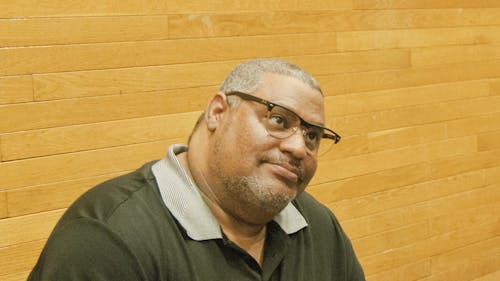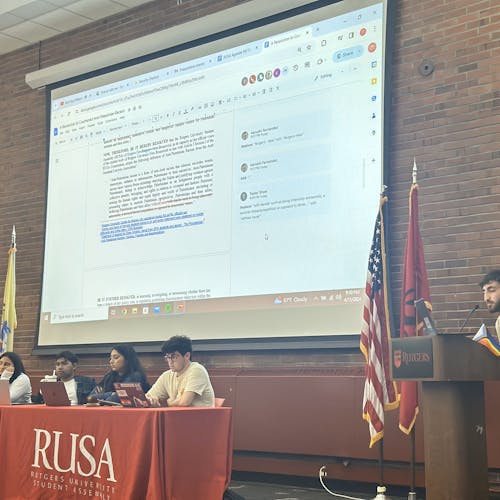Acclaimed writer reads work at Writer’s House

Imprisoned three times by the Nigerian government for being suspected of treason, Chris Abani has used his controversial writing to expose the devastating humanitarian crises in Nigeria.
Abani, an acclaimed poet and novelist, read his excerpts from books as part of the “Writers at Rutgers” series, sponsored by the Department of English. The event that saw more than 150 students and faculty was held yesterday in the Multipurpose Room of the College Avenue Student Center.
He published his first novel at the age of 16, a political piece called “Masters of the Road” that centered on a fictional Nigerian coup.
“I was a precocious child,” he said. “My mother told me to start reading early.”
Abani grew up in an intellectual environment where he had the privilege of great mentorship.
Born in Nigeria to an Igbo father and English mother, he has become a highly influential voice for ethics and humanitarianism. Much of his later work also focused on the political turmoil and racial tension within his home country.
“My books often played with things that other people are uncomfortable with,” Abani said.
He decided to read both poetry and prose for his audience, which included excerpts from his novels “The Secret History of Las Vegas” and “Sanctificum.”
He has been featured in several TED talks, a program which draws experts at the cutting-edge of their fields who bring new ideas to large audiences.
Watching Abani’s TED talks is what led School of Arts and Sciences Senior Fullamusu Bangura to discover him.
Bangura came across Abani’s work while researching for her thesis in English. Her thesis was inspired by a symbol in African literature and wanted to connect it to different literature.
Abani’s TED lectures include “On Humanity” and “Telling Stories from Africa”.
Stephan Schwander, associate professor and chair at the Center for Global Public Health, introduced Abani and highlighted his accomplishments.
“Abani stands tall among the most critically acclaimed and distinguished African writers,” he said.
Abani has made The New York Times Editor’s Choice at least three times and has published seven poetry portfolios and six books of prose, Schwander said.
He most recently published his latest venture this week, a novel called “Face: Cartography of the Void.”
Abani began reading from “Santificum,” a book of poetry that explores racial issues through a love song.
“I learned alchemy in prison, words mean only what you want them to,” he read. “You say sunshine, and you mean hope.”
The book was also inspired by the idea of a man who was exiled from a religious group, which is a sentiment that Abani relates to personally because of his outspoken nature and tendency to bring up controversial ideas.
“I was looking for the way evil and bad coincide with amazing moments,” he said.
Abani’s mother also inspired him. She expressed herself with wit and honesty, often saying what other people were thinking but did not say aloud.
When explaining how he writes his poems, Abani said he prefers to write physically in a notebook since he never learned how to type when he was younger. In his experience, he took advice from a colleague who said that she simply wrote lines continuously until something came together.
“Poetry is the hardest thing to write,” he said. “It’s very hard to write something that can be meaningful. … Deep down, I like the more forgiving form of fiction.”
Abani’s presentation is just one of many in a series of readings hosted by the Rutgers Writer’s House this year.
Other acclaimed writers include Kathleen Graber, a poet, Kathryn Davis, a fiction writer, and novelist and Andrew Solomon, a writer of politics, culture and psychology.
Abani encourages aspiring writers to understand their own language, and how it is that they want to express themselves. It is important to have your writing come from a sense of awe for those around you.
“Reading is first of all asking yourself what your drive is,” he said. “Don’t let anyone tell you what you are and what you’re not.”



